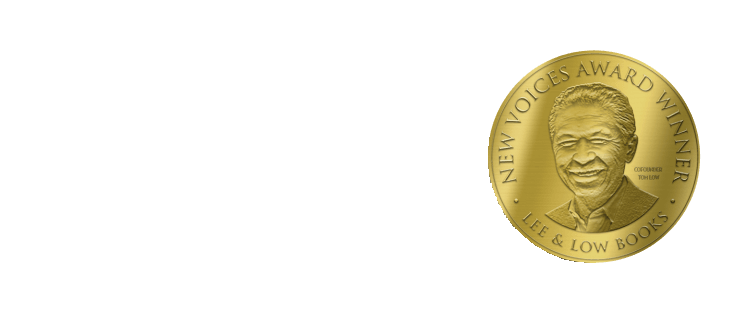 Jill Eisenberg, our Resident Literacy Expert, began her career teaching English as a Foreign Language to second through sixth graders in Yilan, Taiwan as a Fulbright Fellow. She went on to become a literacy teacher for third grade in San Jose, CA as a Teach for America corps member. She is certified in Project Glad instruction to promote English language acquisition and academic achievement. In her column she offers teaching and literacy tips for educators.
Jill Eisenberg, our Resident Literacy Expert, began her career teaching English as a Foreign Language to second through sixth graders in Yilan, Taiwan as a Fulbright Fellow. She went on to become a literacy teacher for third grade in San Jose, CA as a Teach for America corps member. She is certified in Project Glad instruction to promote English language acquisition and academic achievement. In her column she offers teaching and literacy tips for educators.
First Lady Michelle Obama travels to China this week from March 19-26 and will be focusing on the power and importance of education. In an open letter to American students, the First Lady writes, “During my trip, I’ll be visiting a university and two high schools in Beijing and Chengdu (which are two of China’s largest cities). I’ll be talking with students about their lives in China and telling them about America and the values and traditions we hold dear. I’ll be focusing in particular on the power and importance of education, both in my own life and in the lives of young people in both of our countries.”
We at Lee & Low Books wish we could join the First Lady, but since we can’t this time around, we will be reading the biography of one of China’s greatest statesmen, poets, and humanitarians, Su Dongpo. This scholar is a shining example of how persistence and dedication to one’s studies lead to achievement beyond the classroom and enable one to affect meaningful change.
This biography presents a rich setting for Standard 3 of the Common Core State Standards: character analysis. We follow Bloom’s Taxonomy to illustrate the range of questions you can use to meet your students’ needs and access their literary strengths. By creating a progression of questions within one standard, we differentiate for students within a class, provide extension opportunities for ready learners, or move the whole class from literal- to higher-level thinking over the course of several readings.
Knowledge:
- What are Su Dongpo’s appearance/physical attributes, deeds/actions, thoughts/dialogue, and feelings/emotions?
- What are other character’s opinions of and reactions to Su Dongpo?
- Can you select sections showing how Su Dongpo relates to other characters?
- How would you describe Su Dongpo in a paragraph?
Comprehension:
- How would you classify Su Dongpo’s character trait(s) based on these actions, thoughts, and feelings above?
- How would you summarize Su Dongpo’s opinion or feelings about Wang Anshi?
- How would you describe Su Dongpo’s feelings about being banished from his job and home?
- What problems does Su Dongpo face and how does he solve them?
- How would you summarize Su Dongpo’s opinion about the purpose of government?
Application:
- When Su Dongpo was twenty, he took the official exams and earned status as the First Scholar for his academic achievements. Based on what you know about Su Dongpo’s character traits, how would he have handled the situation differently if he had not earned such high marks the first time?
- How would Su Dongpo react if his brother, Su Ziyou, became a corrupt government official?
- What would need to happen or change for Su Dongpo to work for Emperor Zhezong?
- How would Su Dongpo distinguish a “good” government from a “bad” government?
- What would Su Dongpo likely think about our end of the year state assessments or the Common Core State Standards?
- What advice do you think Su Dongpo would have for students who take state and national tests today?
- If Su Dongpo worked for the U.S. Department of Education, what might Su Dongpo feel and think about the role of education in America today?
Analysis:
- How did Su Dongpo’s upbringing prepare him for his career in government?
- What inspired Su Dongpo’s beliefs about the purpose of government?
- Why did Su Dongpo not care about “instant glory” or “worldly fame” when making a decision?
- Compare Su Dongpo and Wang Anshi’s motivations for working in the government.
Synthesis:
- Compose and present a speech that will communicate the thoughts and feelings of Su Dongpo to the Chinese people after he is pardoned when Emperor Zhezong dies.
- Imagine you are Su Dongpo and write a diary account of your daily thoughts and activities. What would you say about the work that you do, the people you meet in government and in the villages, and the challenges you face?
- Rewrite the scene of Su Dongpo hearing he is pardoned after the death of Emperor Zhezong. What would Su Dongpo feel and what would the Chinese people think about him if he were not pardoned?
Evaluation:
- Defend whether you would or would not like Su Dongpo to work in your government.
- Argue what lessons Su Dongpo learned from his career in and out of government.
- How effective is Su Dongpo as a humanitarian?
- Determine whether Su Dongpo was or was not disrespectful of government.
- Assess whether Su Dongpo changed from the beginning to the end of the book based on his character traits.
Additional resources:
Sign up for updates from the First Lady throughout her trips and opportunities to ask questions.
Explore PBS LearningMedia for the First Lady’s blog, a map of China, and other resources.









